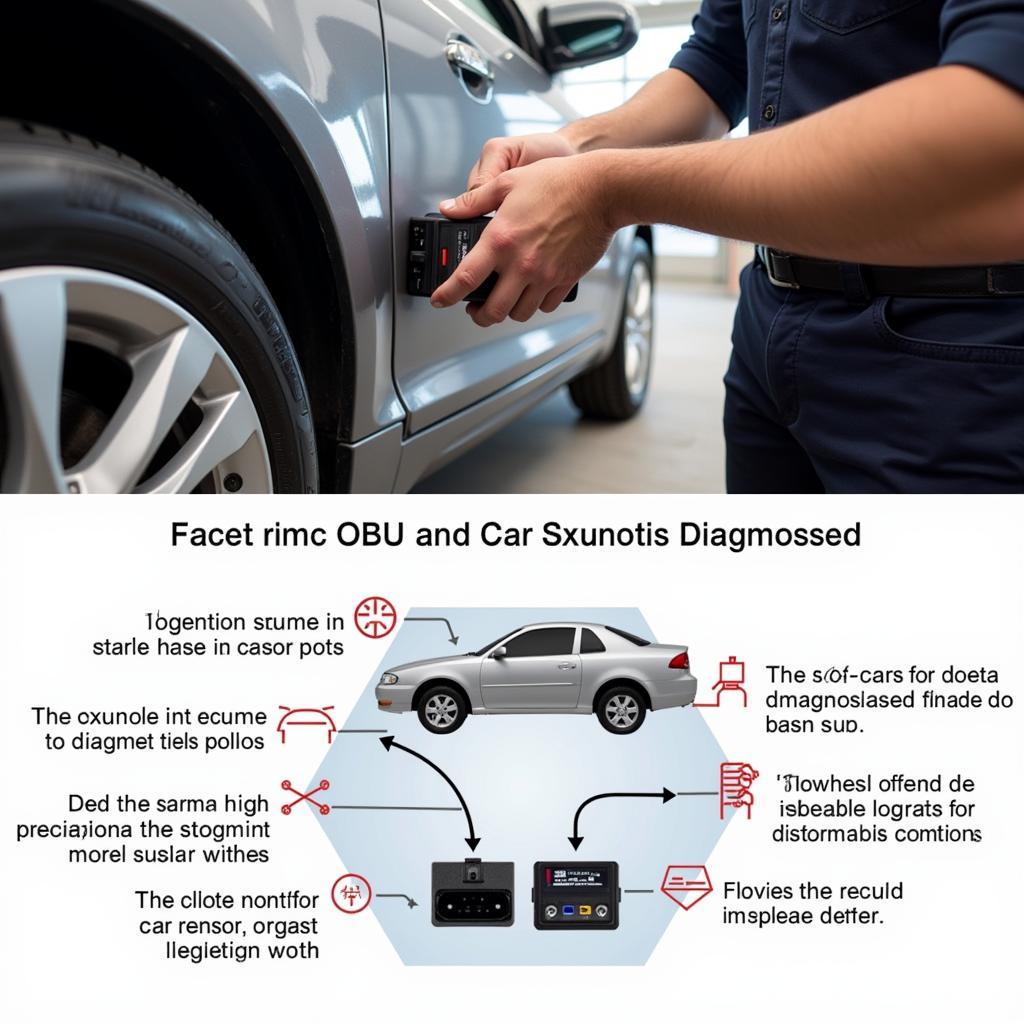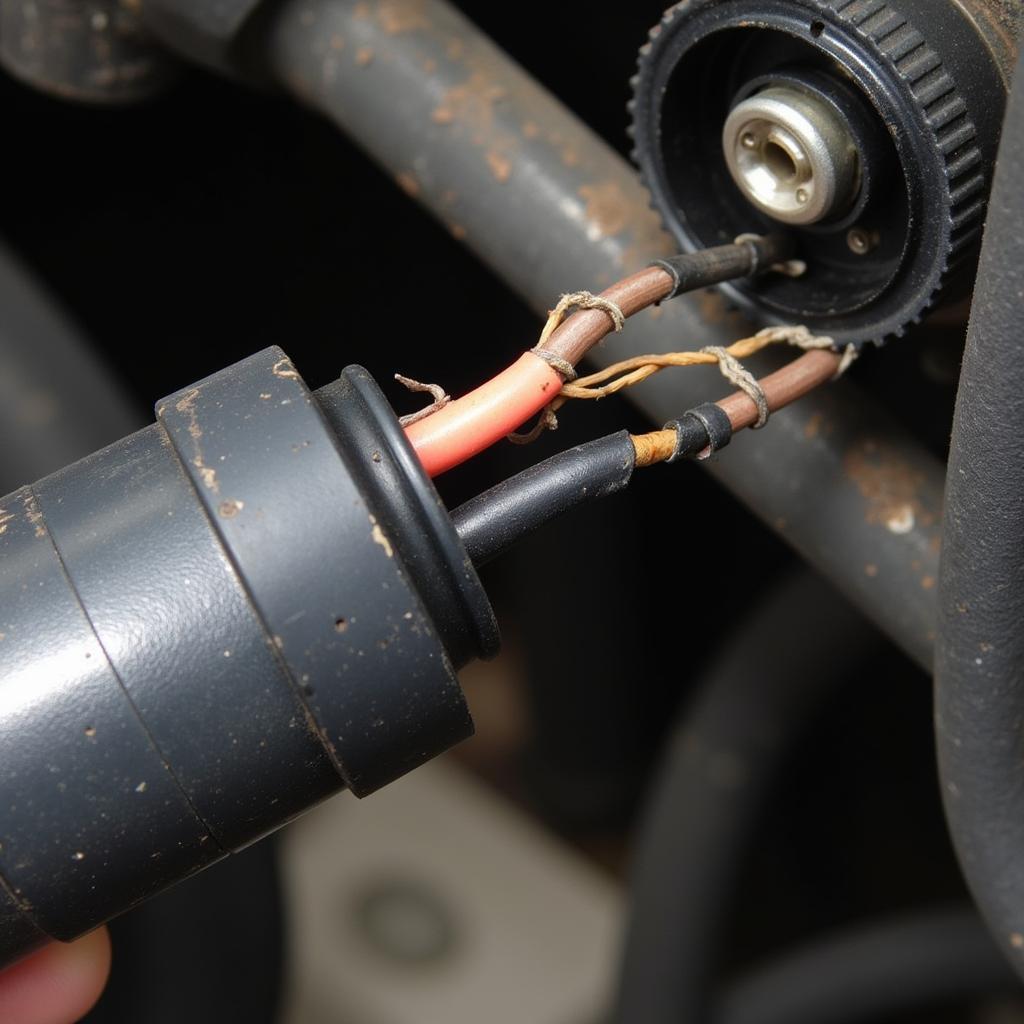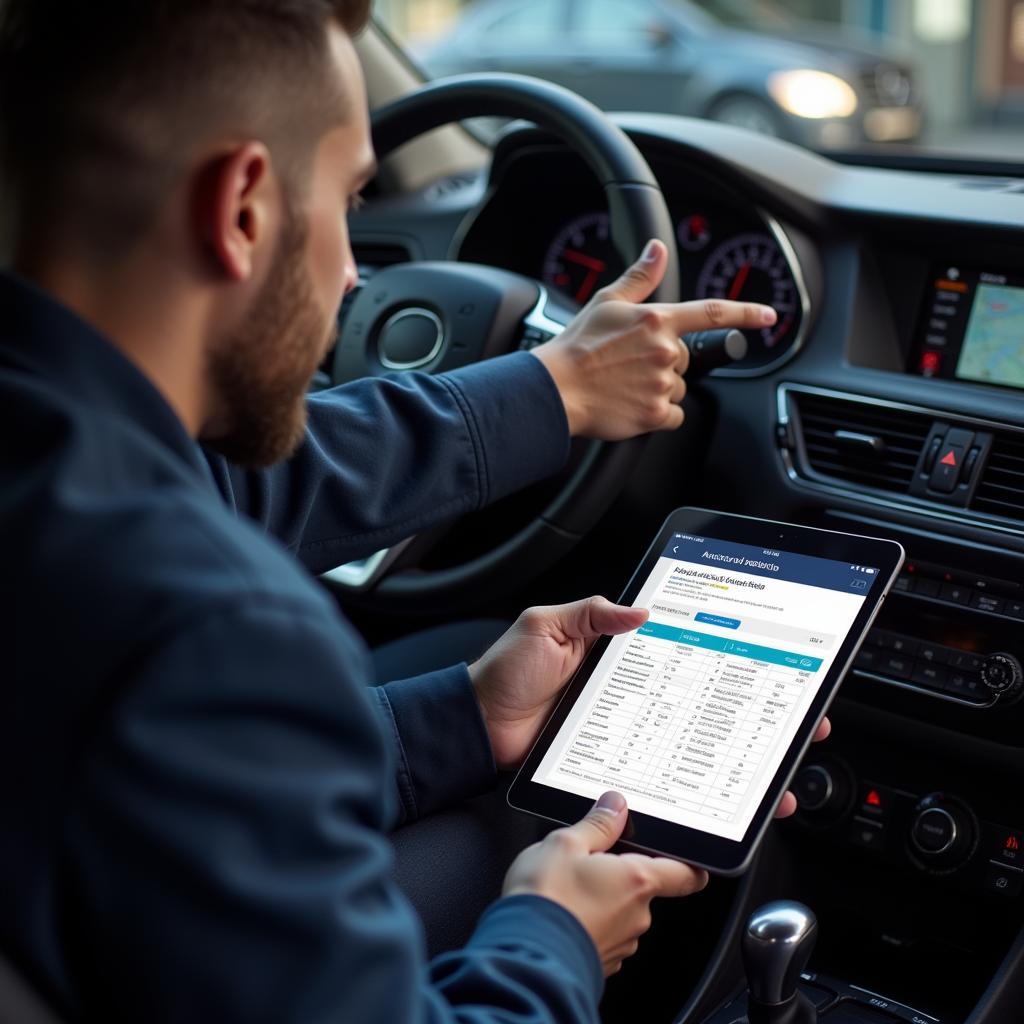Car diagnostics have revolutionized the way mechanics identify and fix vehicle issues. But are these high-tech systems always right? Can you trust the information flashing on your dashboard or the pronouncements of your mechanic’s code reader?
The short answer is: not always. While incredibly sophisticated, car diagnostics aren’t foolproof. They can and do make mistakes, and understanding why is crucial for any car owner. This article delves into the reasons why car diagnostics might be wrong, helping you navigate the world of car repair with a more informed perspective.
Decoding the Diagnostics: How Car Diagnostic Systems Work
To understand how car diagnostics can go wrong, it’s essential to understand how they work. Modern vehicles are equipped with an onboard computer system called an Engine Control Unit (ECU). The ECU constantly monitors various sensors placed throughout your car, collecting data on everything from engine temperature and fuel pressure to airbag status and emissions levels.
 How Car Diagnostic Systems Work
How Car Diagnostic Systems Work
When a sensor detects a reading outside the pre-programmed parameters, it triggers a Diagnostic Trouble Code (DTC), better known as a “check engine light” code. These codes are stored in the ECU’s memory and can be accessed using a specialized tool, often referred to as a car diagnostic scanner or code reader.
Why Your Check Engine Light Might Be Lying: Common Causes of Misdiagnosis
While the technology seems straightforward, several factors can lead to inaccurate or misleading diagnostic results:
1. Faulty Sensors: The Weakest Link
The accuracy of your car’s diagnostic system hinges on the information it receives from its sensors. A malfunctioning sensor can send erroneous data to the ECU, triggering a false positive. For example, a faulty oxygen sensor might report a lean fuel mixture when the actual problem lies with a vacuum leak.
2. Loose Connections and Wiring Issues: Communication Breakdown
 Loose Wiring Causing Diagnostic Error
Loose Wiring Causing Diagnostic Error
Like any complex electrical system, your car’s diagnostic network relies on a web of wires and connectors. Loose connections, corrosion, or damaged wiring can disrupt the flow of information between sensors, the ECU, and the diagnostic tool, leading to misinterpretations.
3. Intermittent Problems: The Elusive Glitches
Some car problems are intermittent, occurring only under specific conditions like extreme temperatures or heavy rain. These sporadic issues can be challenging to diagnose as they might not leave a lasting code in the ECU’s memory, even if the check engine light illuminates momentarily.
4. Human Error: The X-Factor
Even with advanced technology, the human element plays a crucial role in car diagnostics. An inexperienced or rushed mechanic might misinterpret the codes, overlook other potential causes, or rely solely on the diagnostic tool without conducting a thorough physical inspection.
how does a car diagnostic test work
5. Outdated Software: The Importance of Keeping Up
Car diagnostic software, like any other software, requires regular updates. Outdated software might not recognize newer codes or misinterpret existing ones, leading to inaccurate diagnoses.
Recognizing the Red Flags: When to Question Your Car Diagnostic
While some misdiagnoses are unavoidable, certain signs should raise a red flag:
- Multiple unrelated codes: If your diagnostic scan reveals a laundry list of seemingly unrelated codes, it might indicate a more significant electrical issue or a faulty ECU.
- Symptoms don’t match the code: If your car exhibits specific symptoms, but the diagnostic code suggests a different problem, further investigation is needed.
- The problem persists after repairs: If a repair based solely on the diagnostic code doesn’t resolve the issue, it’s crucial to reconsider the initial diagnosis.
Empowering Car Owners: Tips for Accurate Diagnostics and Informed Decisions
 Car Owner Discussing Diagnostic Results with Mechanic
Car Owner Discussing Diagnostic Results with Mechanic
While car diagnostics can be complex, understanding the potential pitfalls can help you become a more informed car owner:
- Choose your mechanic wisely: Opt for experienced mechanics with a reputation for thoroughness and a willingness to explain the diagnostic process.
- Provide a detailed history: The more information you provide about your car’s symptoms, the better equipped your mechanic will be to make an accurate diagnosis.
- Don’t solely rely on the codes: Encourage your mechanic to conduct a thorough physical inspection in conjunction with the diagnostic scan.
- Ask questions: Don’t hesitate to ask your mechanic to explain the codes, the diagnostic process, and their recommended course of action.
how long do diagnostics take on a car
Expert Insight:
“Car diagnostics are powerful tools, but they’re not a substitute for a skilled mechanic’s knowledge and experience,” says Jake Carter, a seasoned automotive engineer with over 20 years of experience. “A comprehensive approach involving visual inspection, symptom analysis, and diagnostic code interpretation is crucial for accurate diagnosis and effective repair.”
Conclusion: Navigating the World of Car Diagnostics with Confidence
Car diagnostics have undoubtedly transformed car repair, making it more efficient and precise. However, it’s essential to remember that these systems are not infallible. By understanding the limitations and potential pitfalls of car diagnostics, and by actively engaging in the diagnostic process, you can ensure your car receives the proper care and attention it deserves.
Remember, knowledge is power when it comes to car repair. By staying informed and asking the right questions, you can navigate the complex world of car diagnostics with confidence.
FAQs:
-
Can I drive my car with the check engine light on?
While it’s not advisable to ignore a check engine light, the urgency depends on the severity of the problem. If the light is flashing, it usually indicates a severe issue requiring immediate attention. A steady light might suggest a less critical problem, but it’s still crucial to get your car diagnosed promptly. -
Can I use a code reader myself?
Yes, affordable code readers are available for purchase, allowing you to read and clear basic diagnostic codes. However, interpreting the codes and diagnosing the underlying problem often requires mechanical expertise. -
How often should I get my car’s diagnostic system checked?
It’s generally recommended to get your car’s diagnostic system checked at least once a year or as part of your regular maintenance schedule.
what does a diagnostic test show on a car
-
Are all car diagnostic tools created equal?
No, diagnostic tools vary in their capabilities and features. Professional-grade tools used by mechanics offer more advanced functions and access to more detailed information compared to consumer-grade code readers. -
Can environmental factors affect car diagnostics?
Yes, extreme temperatures, humidity, and even electromagnetic interference can potentially influence sensor readings and impact the accuracy of car diagnostics.
why does a car always have to go on diagnostic
Do you have any more questions about car diagnostics or need assistance with your vehicle’s diagnostic system? We’re here to help! Contact us via WhatsApp at +1(641)206-8880 or email us at [email protected]. Our team of expert technicians is available 24/7 to provide you with the support and guidance you need.

Leave a Reply